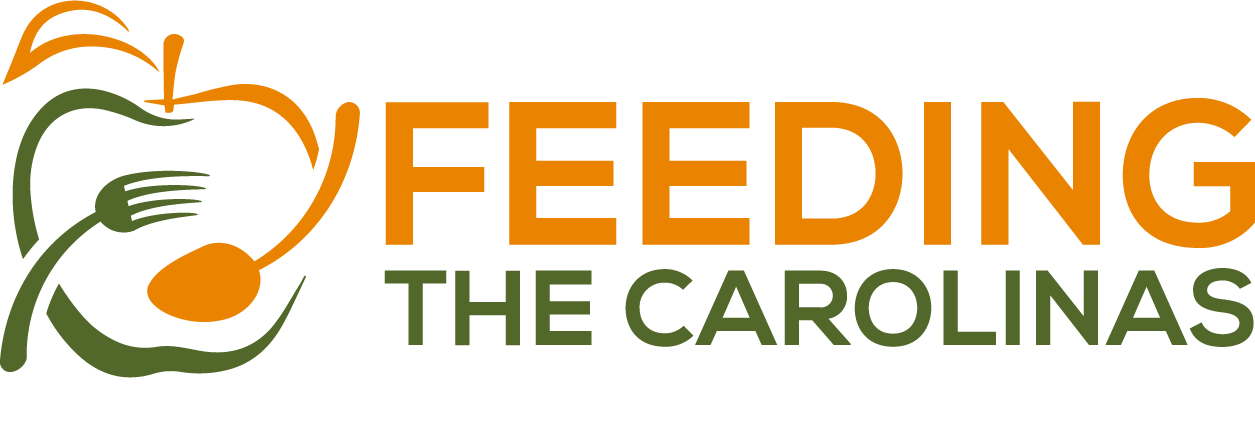Resources and Background Information From Feeding the Carolinas
Amid the highest food insecurity rates in nearly a decade, a government shutdown is creating hardship and uncertainty for millions of people. Many hardworking folks are just one paycheck away from needing support from their local food bank.
Find help near you | How to Help Your Neighbors | Background
Find Help Near You
Need Help with Groceries?
Our Food Banks & their partner organizations distribute food in all 146 counties in the Carolinas. To find help near you, use your local Food Bank’s website (linked below) or call them directly.
North Carolina’s Food Banks:
-
-
- Food Bank of the Albemarle (northeast NC)
- Second Harvest Food Bank of Southeast NC (Fayetteville and southeast)
- Food Bank of Central & Eastern North Carolina (greater Triangle region through coastal NC)
- Inter-Faith Food Shuttle (greater Triangle region)
- Second Harvest Food Bank of Metrolina (greater Charlotte area)
- Second Harvest Food Bank of Northwest NC (greater Triad area and northwest)
- MANNA Food Bank (western NC)
-
South Carolina’s Food Banks:
-
-
- Lowcountry Food Bank (coastal South Carolina)
- Second Harvest Food Bank of Metrolina (greater Charlotte area and upstate)
- Harvest Hope Food Bank (Midlands and upstate)
- Golden Harvest Food Bank (Aiken and surrounding counties)
-
How to Help Your Neighbors
During all seasons, your neighborhood Food Banks and pantries stand ready to help.
How to Help:
Donate to your local Food Bank. Our member Food Banks are incredibly efficient, with every $1 providing 5 meals!
Volunteer at your local Food Bank. More need = more helping hands. We won’t say ‘no’ if you want to bring a friend!
Call on your elected officials to come together to end the shutdown and fully fund our nation’s food and nutrition programs.
Special Thanks!
Thank you Governor Henry McMaster and the One SC Fund for supporting South Carolina Food Banks!
Thank you, Governor Josh Stein and donors across North Carolina, for supporting NC Food Banks!
The states of North and South Carolina are stepping up to feed our neighbors during this crisis. Individual and corporate donors are helping food banks reach more people while the federal government is shut down. Now we need Congress to act.
Background: An Already Difficult Situation
Even before the shutdown, our Food Banks across the Carolinas we’re seeing an increase in need of 30% or more over this time last year, with some Food Banks in the Carolinas having set new records for the number of individuals seeking assistance in September. The need is especially high in those areas still being rebuilt following Hurricane Helene.
Unfortunately, cuts to federal and state food programs throughout 2025 have harmed food banks’ ability to meet this rising demand:
-
-
-
- USDA made steep cuts to important food grants and programs throughout 2025 that bring fresh produce and commodities to food banks around the nation, including the Carolinas.
- In North Carolina, the state legislature did not renew funding to our member Food Banks—for the first time in 30 years. South Carolina’s legislature does not allocate any funding to our Food Banks that serve the state.
-
-
Government Shutdown Fuels a Fire
The shutdown, now into its second month, is delaying paychecks for families who work for the federal government or a government contractor, making it harder to them to feed their families.
In the Carolinas, there are over 132,000 active-duty military personnel, and over 107,000 federal employees. Many more are employed as contractors across the Department of Defense, Agriculture, and many other agencies.
If delayed paychecks were not enough, as of November 1st, the shutdown is now disrupting peoples’ access to SNAP.
SNAP helps nearly 2 million people in the Carolinas get enough to eat each month.
While the USDA has announced the release of some funds for November SNAP benefits, the program is providing less in benefits. Leaving families to make hard choices to put food on the table or pay their bills. It’s hard to focus on work or school when you’re hungry.
SNAP is a Pillar of Stability for Families & Economies
SNAP disruptions have serious consequences for our communities. Benefits are spent at local grocery stores and markets, keeping small businesses open and supporting local jobs. When there are no SNAP benefits, it doesn’t just affect families—it impacts store owners, farmers, and local economies.
Each $1 in SNAP benefits, generates approximately $1.50 in local economic activity.
As need rises, our member Food Banks will continue to show up for our communities, but meeting this challenge requires all of the tools in the toolbox. Even with robust support, Food Banks can provide only a fraction of the nutritional assistance that federal programs like SNAP provide.
For every meal that a food bank provides to neighbors experiencing hunger, SNAP provides nine.
Private charity, including generous donations from individuals, is crucial to our Food Banks’ ability to meet the increasing need for food assistance in our communities. However, philanthropy cannot replace the volume and stability that federal nutrition programs provide to people across the Carolinas.
A Clear Solution: Open the Government and Fully Fund Nutrition Programs
“We need our elected leaders to come together and act,” said Eric Aft, CEO of Second Harvest Food Bank of Northwest NC, and Chair of Feeding the Carolinas. “Shutdowns and short-term fixes are not strategy. Continuing resolutions are not stability. Nutrition programs must be funded fully and predictably so that families, farmers, schools, and health systems are not held hostage to gridlock.”
We urge leaders in Congress to work together to reopen the government and fully fund programs like SNAP. By working together, we can restore stability, strengthen families and ensure every child has the foundation they need to thrive.
Ten Food Banks, One Mission: Feeding the Carolinas.
